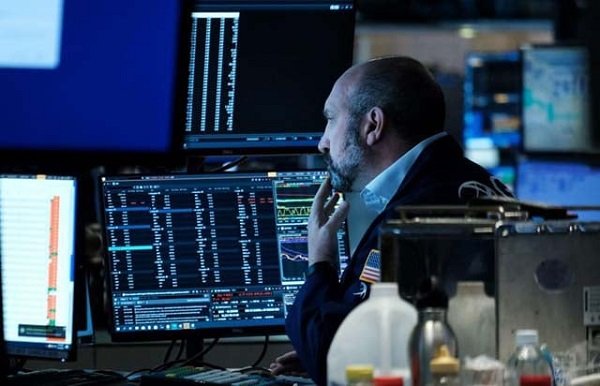
Asian stocks were mixed Thursday after another dour day across global markets fuelled by a sense of resignation that the interest rate cuts long expected in March will not materialise as inflation remains stubbornly high.
A lack of meaningful measures by Beijing to boost China’s economy was adding to the frustration among investors, even as growth for 2023 came in at its slowest rate in more than three decades, excluding the pandemic years.
All three main indexes on Wall Street ended in the red after data showed US retail sales smashed forecasts in December as consumers brushed off higher borrowing costs.
The figures followed surprisingly high readings this month on consumer prices and jobs creation, as well as minutes from the Federal Reserve’s most recent meeting that showed officials were keen to keep rates elevated for some time to contain inflation.
A string of data at the end of last year — and a dovish statement from the US central bank — had lit a fire under stocks in December and ramped up bets on the first of many rate cuts taking place in March.
But the past two weeks have virtually dashed those hopes, and Bloomberg News said traders have cut the likelihood of a March move to below 60 percent for the first time since December, down from 80 percent on Friday.
“The solid US retail figures are another piece of evidence vindicating the more cautious Fed guidance relative to market expectations,” said National Australia Bank’s Rodrigo Catril.
Hopes for an early cut by the European Central Bank have also been doused by boss Christine Lagarde who warned no such move was foreseen until the summer.
There was a small sliver of hope from the Fed’s Beige Book report on the economic outlook, which showed US businesses were “optimistic” about the prospect of falling interest rates, even as economic conditions have remained largely unchanged in recent weeks.
However, equity traders were not quite as upbeat, with Asian markets fluctuating through the morning.
Tokyo resumed its upward march after two days of losses, with investors cheered by a weaker yen and rising inflation, while Singapore, Seoul, Taipei and Jakarta also rose.
But Sydney, Wellington and Manila were down.
Hong Kong and Shanghai continued to fall as worries about China’s economic outlook remained following Wednesday’s soft economic growth figures.
While in line with forecasts, the 5.2 percent expansion was the worst since 1990 — outside the Covid years — and ramped up calls for authorities to provide a much-needed shot in the arm to the torpid economy, particularly the shattered property sector.
But demands for a “bazooka” stimulus similar to that unveiled during the financial crisis in 2008 have fallen on deaf ears, with Premier Li Qiang playing up the fact the latest reading was achieved without “massive stimulus”.
“We did not seek short-term growth while accumulating long term risk,” he said at the World Economic Forum in Davos.
Analysts said the comments suggest officials were still not prepared to unleash the big financial guns.
“Authorities don’t want to give the impression that they are very worried about growth, and they want to try to see the economy through 2024 without significant stimulus,” Louis Kuijs, at S&P Global Ratings, said.
“There is a risk that they are underplaying the downward pressures on the economy.”
– Key figures around 0230 GMT –
Tokyo – Nikkei 225: UP 0.5 percent at 35,637.01 (break)
Hong Kong – Hang Seng Index: DOWN 0.1 percent at 15,261.10
Shanghai – Composite: DOWN 1.6 percent at 2,788.92
Dollar/yen: DOWN at 148.00 yen from 148.19 yen on Wednesday
Pound/dollar: UP at $1.2690 from $1.2680
Euro/pound: UP at 85.87 pence from 85.81 pence
Euro/dollar: UP at $1.0896 from $1.0884
West Texas Intermediate: UP 0.3 percent at $72.78 per barrel
Brent North Sea Crude: UP 0.1 percent at $77.97 per barrel
New York – Dow: DOWN 0.3 percent at 37,266.67 points (close)
London – FTSE 100: DOWN 1.5 percent at 7,446.29 (close)
 Weekly Bangla Mirror | Bangla Mirror, Bangladeshi news in UK, bangla mirror news
Weekly Bangla Mirror | Bangla Mirror, Bangladeshi news in UK, bangla mirror news







